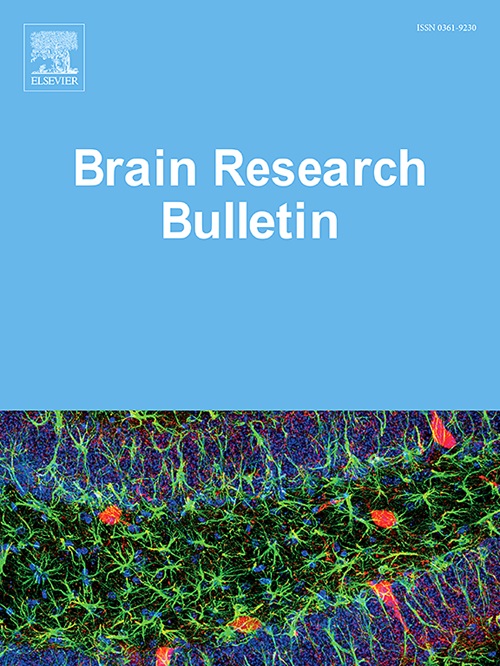腹侧海马的星形细胞糖皮质激素受体调节焦虑样行为
IF 3.7
3区 医学
Q2 NEUROSCIENCES
引用次数: 0
摘要
应激暴露与焦虑障碍的发展有关,星形胶质细胞已成为应激反应和焦虑发病机制的关键介质。虽然星形细胞功能障碍与这些过程有关,但具体的分子机制仍然难以捉摸。在这项研究中,我们证明了腹侧海马(vHPC)中的星形细胞糖皮质激素受体(GRs)在调节焦虑样行为中的关键作用。我们发现,慢性约束应激特异性地降低了vHPC中GR的表达,而杏仁核和海马背侧未观察到显著变化。与这一发现相一致的是,长期给药皮质酮可诱导小鼠的焦虑样行为,并伴有vHPC中GR表达的显著降低。在这些应激条件下,星形胶质细胞的GR降低虽然在功能上很显著,但并不是它们所独有的。星形胶质细胞中GRs的靶向缺失导致小鼠出现焦虑样行为。值得注意的是,选择性消融星形细胞GRs特别是在vHPC区域产生类似的行为表型。对星形细胞gr耗竭小鼠的vHPC进行RNA测序分析,确定了星形细胞gr在焦虑中的病理机制的潜在分子机制。这些发现建立了vHPC中星形细胞GRs调节焦虑样行为的新途径,为应激相关焦虑障碍的神经生物学基础提供了新的见解,并确定了潜在的治疗靶点。本文章由计算机程序翻译,如有差异,请以英文原文为准。
Astrocytic glucocorticoid receptors in the ventral hippocampus modulate anxiety-like behaviors
Stress exposure is associated with the development of anxiety disorders, and astrocytes have emerged as critical mediators of stress responses and anxiety pathogenesis. While astrocytic dysfunction has been implicated in these processes, the specific molecular mechanisms remain elusive. In this study, we demonstrate a crucial role for astrocytic glucocorticoid receptors (GRs) in the ventral hippocampus (vHPC) in modulating anxiety-like behaviors. We found that chronic restraint stress specifically reduced the GR expression in the vHPC, with no significant changes observed in the amygdala or dorsal hippocampus. Consistent with this finding, chronic corticosterone administration was found to induce anxiety-like behaviors in mice, accompanied by a significant reduction in the GR expression in the vHPC. The GR reduction, while prominent and functionally significant in astrocytes, is not exclusive to them in the vHPC under these stress conditions. Targeted deletion of GRs in astrocytes resulted in the development of anxiety-like behaviors in mice. Notably, selective ablation of astrocytic GRs specifically within the vHPC region produced similar behavioral phenotypes. RNA sequencing analysis of the vHPC from astrocytic GR-depletion mice identified potential molecular mechanisms underlying the pathomechanisms of astrocytic GRs in anxiety. These findings establish a novel pathway through which astrocytic GRs in the vHPC regulate anxiety-like behaviors, providing new insights into the neurobiological basis of stress-related anxiety disorders and identifying potential therapeutic targets.
求助全文
通过发布文献求助,成功后即可免费获取论文全文。
去求助
来源期刊

Brain Research Bulletin
医学-神经科学
CiteScore
6.90
自引率
2.60%
发文量
253
审稿时长
67 days
期刊介绍:
The Brain Research Bulletin (BRB) aims to publish novel work that advances our knowledge of molecular and cellular mechanisms that underlie neural network properties associated with behavior, cognition and other brain functions during neurodevelopment and in the adult. Although clinical research is out of the Journal''s scope, the BRB also aims to publish translation research that provides insight into biological mechanisms and processes associated with neurodegeneration mechanisms, neurological diseases and neuropsychiatric disorders. The Journal is especially interested in research using novel methodologies, such as optogenetics, multielectrode array recordings and life imaging in wild-type and genetically-modified animal models, with the goal to advance our understanding of how neurons, glia and networks function in vivo.
 求助内容:
求助内容: 应助结果提醒方式:
应助结果提醒方式:


